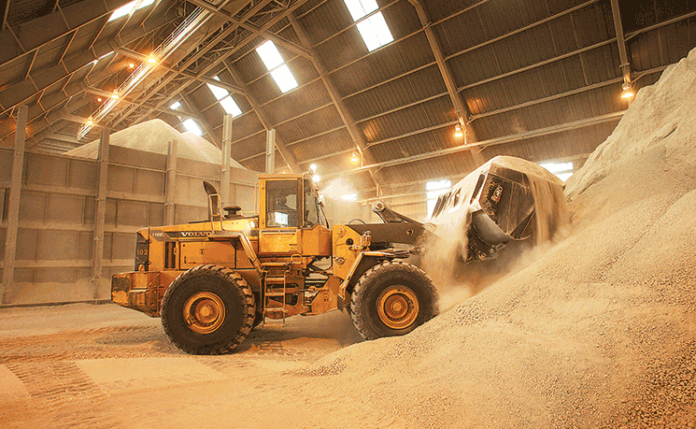
The Trump Administration’s trade war rumblings are causing a new round of headaches for local and national trade groups worried about repercussions.
The back and forth with China – and off-again on-again threats of a trade war with that country – returned to the on-again side when on May 29, the U.S. revived a tariff threat of $50 billion on Chinese goods. The 25 percent tariff includes Chinese products in several high tech industries. And China has said it’s ready to retaliate with billions of dollars in higher tariffs on American goods.
Then, on May 31, The Trump Administration announced the U.S. would impose steel and aluminum tariffs on Canada, Mexico and the European Union in an attempt to reduce trade imbalances with those countries. The administration is also looking at tariffs on automobiles between the U.S., Canada and Mexico, something that also has foreign leaders calling for retaliatory tariffs.
Lori Otto Punke, president of the Washington Council on International Trade, said the decision to bring Canada, Mexico and the European Union into the administration’s trade war doesn’t bode well for Washington state, nor does the escalating situation with China.
“The Washington Council on International Trade strongly disagrees with the administration’s decision to impose steel and aluminum tariffs on Canada, Mexico and the European Union, all of which are some of Washington’s most important trading partners,” Otto Punke said in a statement. “Here at home, where 40 percent of all jobs are trade related, the administration’s actions stand to inflict a disproportionate amount of harm on our workers, our businesses and our communities.”
Sen. Maria Cantwell (D-WA) also issued a statement warning of the potential repercussions of a trade war after the administration announced its plans for Mexico, Canada and the European Union.
“I am very concerned about the Trump Administration’s approach to dealing with our allies,” Cantwelll said. “Trade wars cause U.S. exporters to lose market share and shelf space, which are hard to regain.”
Mexico is the top market for Washington’s apple farmers, she said, noting that the decision could impact a commodity that brings about $215 million to the state each year.
“American apples make up 50 percent of the total apple market in Mexico,” Cantwell said. “These tariffs put that opportunity in jeopardy, along with putting other U.S. exports to Canada and the European Union at risk. The Administration must resolve these disputes through negotiations.”
Tariffs against allied countries are likely to only cause more financial upheaval for American citizens, Otto Punke added.
“More broadly, these tariffs will do little more than invite retribution from our rule-abiding allies and hinder the global cooperation required to stand up against unfair trade practices from other nations,” Otto Punke said. “As an upstanding member of the global trade community, we should be setting a better example. This is not the way to do business.”
Even the notably conservative U.S. Chamber of Commerce opposes the notion of a trade war. President and CEO Thomas J. Donohue said he thinks the conflict could destroy any economic momentum gained through the administration’s tax reforms.
“We won’t drive the economy to over 3 percent growth or continue to create jobs if we go down this path,” Donohue said. “We urge the administration to take this risk seriously and specifically to refrain from imposing new worldwide tariffs on steel and aluminum. These new tariffs would directly harm American manufacturers, provoke widespread retaliation from our trading partners, and leave virtually untouched the true problem of Chinese steel and aluminum overcapacity. Alienating our strongest global allies amid high-stakes trade negotiations is not the path to long-term American leadership.”


